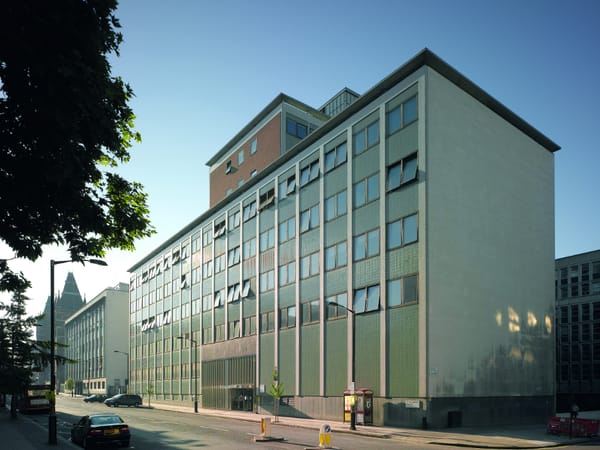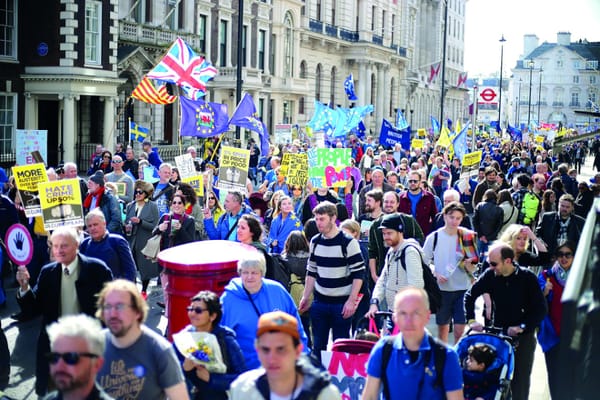The Felix News round-up: here's what's been going on around campus this year
As the year draws to a close, we take a look back at what's happened at Imperial for the past 12 months. Expect tie clubs, cooked breakfasts, and library closures
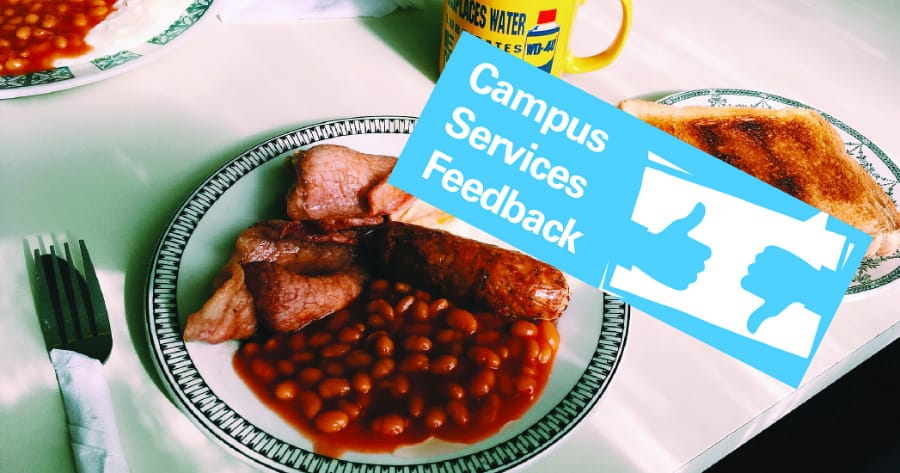
It's nearly the end of the year, so it's as good a time as any to step back and take stock of what's been going on around campus for the past 12 months:
TEF applications
This year marked the introduction of the ‘Teaching Excellence Framework’ (TEF), a government assessment of the quality of higher education providers. Imperial achieved Gold, the highest level possible. TEF has not been without its controversies: developed by the Department of Education, it is described as a “scheme for recognising excellent teaching”, but initially was scheduled to be linked to tuition fees. A university that achieved the highest level of TEF would be able to increase their tuition fees in line with inflation.
For Imperial College Union, the proposals presented a dilemma: while they had adopted a proposal to oppose any increase in tuition fees or marketisation of higher education, by involving themselves with TEF the Union would be able to shape College policy. Following an extraordinary Council meeting at the beginning of January, a motion to engage with College on TEF was passed with minor amendments. Imperial gained their TEF Gold status in June.
However, in October of this year, Prime Minister Theresa May announced that tuition feed would be capped at £9,250 until 2019, negating any opportunity for TEF Gold universities to raise fees in line with inflation. Recent studies have also found that the majority of students – while welcoming evaluation of a university’s quality – do not believe that TEF should be linked to tuition fees.
Smoke Free
Imperial implemented a smoking ban across all College campuses and properties from the 1st August. The move, which had been discussed for over a year, took place following a referendum. Around 750 students took part in the referendum, of which the majority thought that smoking should be banned on campus. A working group then made the decision to ban smoking within 20m of all College land. It is unclear how the ban is being enforced – a College spokesperson told Felix that it would “not be principally the responsiblity of security staff”, but would be implemented with the cooperation of staff and students. The College said that the ban was an attempt to fulfil their “duty of care to staff and students”.
Those returning to Imperial this autumn were greeted by a number of large signs that had popped up around campus, informing them of the changes. Felix has heard reports that several of these signs have since been taken home by students, with one turning up in the Fulham Slug and Lettuce.
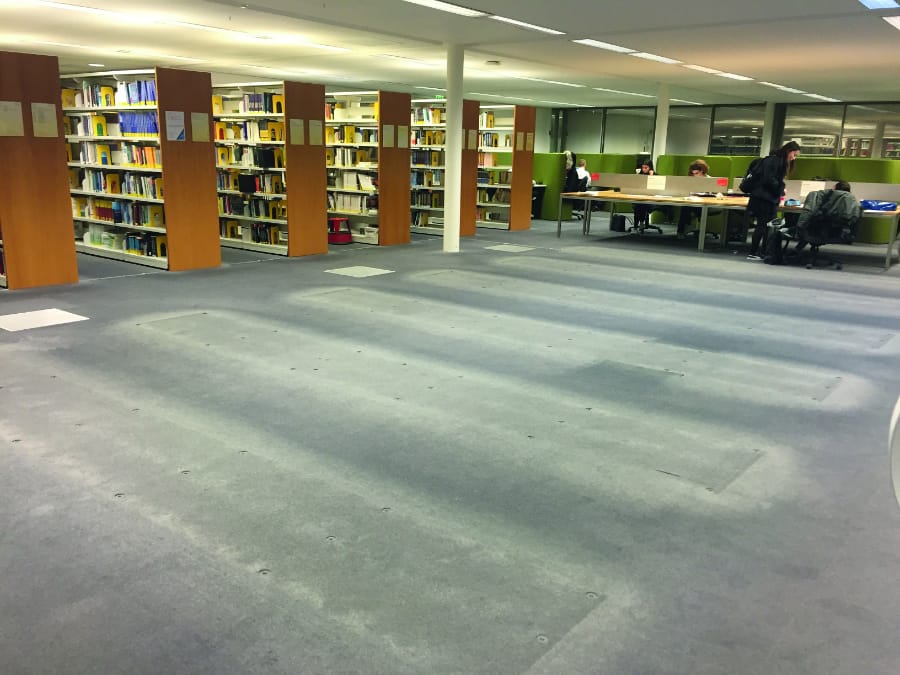
Central Library gets air con
Just before last Christmas, Library Services announced that plans were in place to improve temperature control in Central Library, following a number of complaints from students. Now, nearly a year later, the first phase of works are coming to an end, with study spaces beginning to open up on Levels 4 and 5.
While the move has been welcomed by students annoyed about the temperature levels in Central Library – Library Services has said temperature control was “the single biggest source of complaint from the student body for several years” – the works have faced a number of delays. The two floors were supposed to be opened by the beginning of November, but will now face a “soft” opening as books are returned to their rightful shelves and new furniture put in place. Library Services have also been sharing images of the new plug sockets on social media – a welcome relief for anyone who’s experienced the hunt for a working socket in the Library.
“Two levels of the library are due to reopen this week, as books are moved back to their places”
The next phase of the development is scheduled to start in summer of next year, as cooling and ventilation systems are installed on Levels 2 and 3. Similar to this year’s works, those levels will be closed off as the renovations occur. The total development is scheduled to cost £11 million.
Controversial ‘Tie Clubs’ paper passed
This March, arguments around the use of Union storage space for tankards belonging to ‘Tie Clubs’ arose in Union Council. The clubs, which include the 22 Club, the Chaps Club, and the Links Club, among others, mainly function as social societies.
A paper was raised in Council, arguing that tie clubs should not be allowed to make use of Union facilities and storage until they had proven that they adhered to the Union’s Equal Opportunities Policy. Some students had expressed concern that tie clubs were discriminatory in their membership policies; a number of tie club members denied this charge, saying they let in students of all genders. An amended version of the paper was passed, which stated that any groups storing tankards would not be allowed to breach the Union’s Safe Space Policy, and did not single out tie clubs in particular. The paper was passed by a large majority, and Felix believe a challenge has been made against the 22 Club to show they adhere to the Safe Space Policy within the next two months.
Woodward Buildings fails fire safety tests
The cladding system used in Woodward Buildings, one of Imperial’s newest student halls, failed fire safety tests carried out this summer. The tests were ordered by the government following the tragic fire in Grenfell Tower, which killed 70 people.
“Woodward was declared 'safe' despite its cladding failing the fire safety tests”
The results of the tests were revealed to the halls’ 690 occupants via an email, which assured them that – despite failing the tests – the building was “safe for occupancy”. The College have been consulting with professionals regarding removal of the cladding, and are awaiting the results of further tests. They expect the results to come in at the beginning of next year.
Residents of the hall also revealed to Felix that staff had been breaching fire safety protocol by wedging open doors across a single floor. One student said that the approach the College had taken was “insulting to our intelligence, with nine paragraphs of shallow reassurance, and only one sentence in which they said the actual reason for writing the letter”. Woodward Buildings were the only Imperial halls with cladding that failed tests, although nearly 200 other buildings across the UK had failed tests.
Cooked breakfast removed from SCR menu
Postgraduate students looking forward to tucking into the Senior Common Room’s (SCR) cooked breakfast this year were left disappointed, with Imperial’s Campus Services removing the option amid wide-ranging changes to services.
As well as removing cooked breakfasts, the College increased prices across all outlets operated by Campus Services, reviewed their portion sizes, reduced the range of options on offer, and cut the opening times of a number of their outlets. The move provoked criticism from staff and students, with one staff member saying “the fact is that catering is now less varied and less affordable”, and another telling Felix “it sounds like [when the College talk about] reducing their cost, it’s really coming out of our pocket.”
Changes to opening hours also came under fire: overall, during term time, campus outlets will be open for ten fewer hours a day. Ethos gym also changed its out-of-term opening hours, cutting them by 18 hours a week, a move that disproportionately affects postgraduate students and staff. One staff member told Felix that in the last ten years their experience at Imperial had been “unfortunately worse and worse”.
Campus Services defended the changes, saying that their catering facilities operated at a loss, and that Ethos was used by fewer people outside of term time, hence the change to hours. In October, Imperial College Union launched a survey in response to these changes, asking students to give their thoughts on outlet opening hours; the results of this survey are yet to be announced.
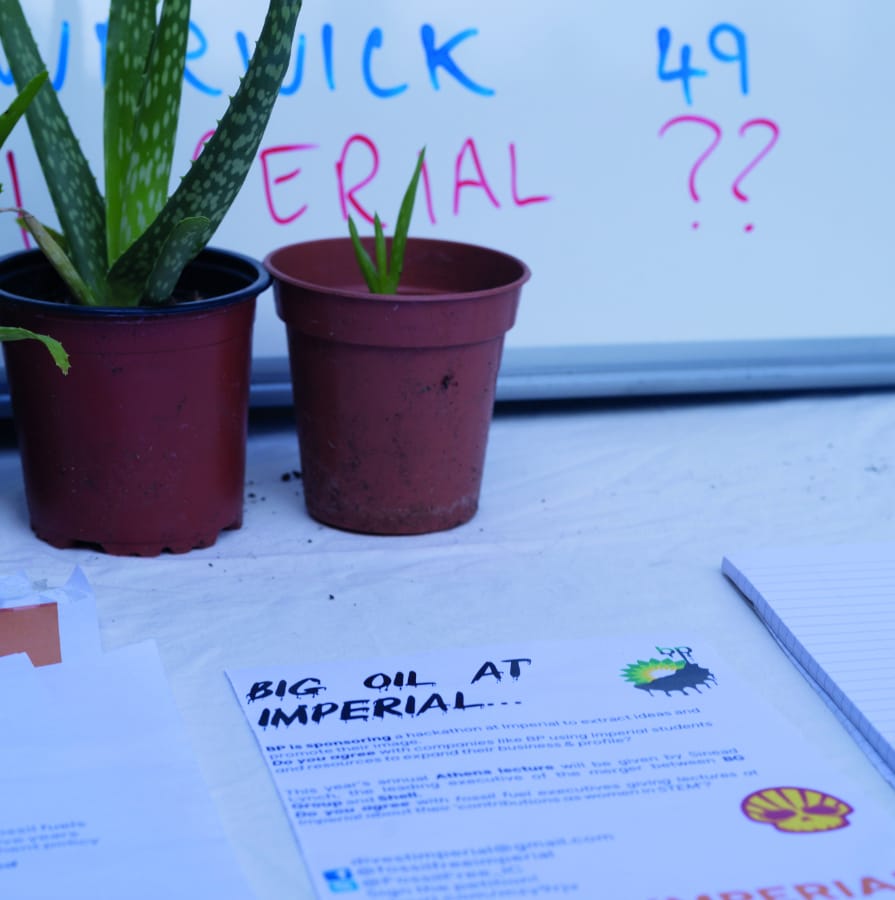
Imperial fall in People and Planet League Tables
Imperial plummeted in the People and Planet league tables – published this November – which rank universities based on environmental and ethical criteria. They dropped from 96th to 141st in the rankings, making them bottom of the Russell Group, with a score of 18.5% – this earned them a ‘failed’ rating.
Imperial’s results, which were based on a number of metrics, were described as “entirely fair” and “unsurprising” by a number of students, who highlighted the amount Imperial has invested in fossil fuel companies. People and Planet reported that Imperial currently has nearly £9 million of their endowment fund invested in the fossil fuel industry, as well as several million invested in arms companies. While Imperial has a number of departments dedicated to climate change and sustainability, such as the Grantham Institute for Climate Change, they scored extremely poorly in a range of areas, including education for sustainable development. One academic told Felix that the results showed that it was “about time the College takes sustainability as seriously as the other 140 universities ahead of us.”
Union and College under fire for handling of sexual assault case
An alumna of Imperial told Felix that the Union and College’s handling of her sexual assault was “more distressing” than the incident itself.
The alumna told Felix that she was attending an event at the Union earlier this year when she was sexually assaulted by a current student. She did not report it to the Union or College at the time, only doing so two months later, when the accused perpetrator was running to be president of a student society. She was passed between the College and the Union in an investigation that took seven months, and left her suicidal at points.
“The victim said that the investigation by the Union and College and Union was more distressing than the assault ”
As well as frequent periods with no communication, there was no central point of contact provided by the College, leaving the alumna feeling isolated. There were problems with collecting witness statements: none of the witnesses were able to provide a statement without some form of miscommunication, the accused did not have his statement collected until October, and at some points the alumna was encouraged to contact witnesses herself.
When the investigation came to a close, the Union concluded that the accused was guilty of sexual misconduct, but that the accused’s position of authority was not “an enabling factor”, since he was not in the position at the time of the incident. The victim described this outcome as “a mere slap on the wrist”, as well as “irrelevant and offensive”. The victim told Felix that “unless the Union can demonstrate they are able to handle sexual abuse cases efficiently, fairly, and supportively, it is clear to me they should not take on this responsibility.”
The College and Union have both said that they will learn lessons from the case, and review their policy for future complaints. It is highly likely that this will not be the last complaint Imperial needs to investigate: research in 2010 found that one in seven female students in the UK had been a victim of sexual violence.



